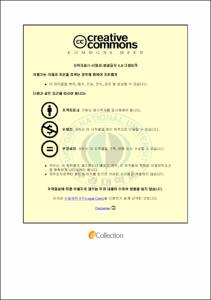유아기 아버지의 양육효능감과 양육참여도와의 관계
- Abstract
- The relationship between Father's Parenting Self-Efficacy
and Paternal Child Rearing Involvement
Hwang Sun Sil
Early Childhood Education Department
Graduate School of Education,
Pukyong National University
Abstract
The purpose of this study is to pave the way for finding a theoretical solution and for encouraging fathers to paternal involvement in child rearing. Based of the purpose of this study, the key questions of this study are as followings.
1, How father's demographic Variables affect parenting self-efficacy?
2, How father's demographic Variables affect paternal child rearing involvement?
3, How do parenting self-efficacy and Paternal Child Rearing Involvement relate to
each other?
The object of this study was 380 fathers who have a child attending kindergarten in Busan at the age of 3 to 5. Well-Parker and Choi Hyung Sung's(2001) index of self-efficacy was used as a measurement of parenting self-efficacy. And Lee Hae-Kyung(2007)'s index, referred to questionnaire Choi Kyung-Sun(1992) and Jeon Hyo-Sook(1990), was used as a measurement of child rearing involvement.
Data processing was calculated based on a a correlation coefficient : T-test, F-test and Person.
Considering demographic variables, the results from this study were as follows :
First, parenting self-efficacy was little affected by the level of income, but the level of parenting self-efficacy and its subcategories were affected by age, level of education, occupation, average weekly working hours, and whether wife was employed or not.
Second, paternal child rearing involvement was little affected by the level of income, but the level of paternal child rearing involvement and its subcategories were affected by age, level of education, occupation, average weekly working hours, and whether wife was employed or not.
Third, as a result of analyzing the relationship between parenting self-efficacy and paternal child rearing involvement, parenting self-efficacy was highly correlated with their participation in child rearing. This result can be considered as follow :
The more parenting self-efficacy, the more paternal child rearing involvement.
Looking into parenting self-efficacy and paternal child rearing involvement based on father's demographic variables, this study tells you how demographic variables affect both parenting self-efficacy and paternal child rearing involvement. On the other hand, this study can find its meaning in increasing level of parenting self-efficacy and in providing various programs and information, which makes fathers to be involved in child rearing.
- Issued Date
- 2011
- Awarded Date
- 2011. 2
- Type
- Dissertation
- Publisher
- 부경대학교
- Alternative Author(s)
- Hwang Sun Sil
- Affiliation
- 부경대학교 교육대학원
- Department
- 교육대학원 유아교육전공
- Advisor
- 황희숙
- Table Of Contents
- 목 차
Ⅰ. 서 론 1
1. 연구의 필요성 및 목적 1
2. 연구문제 6
3. 용어의 정의 6
Ⅱ. 이론적 배경 8
1. 아버지 역할의 중요성 8
2. 양육효능감 15
3. 양육참여도 18
4. 양육효능감과 양육참여도와의 관계에 대한 선행 연구 고찰 22
Ⅲ. 연구 방법 25
1. 연구 대상 25
2. 연구 도구 26
3. 자료수집 및 분석 28
Ⅳ. 연구 결과 및 해석 29
1. 아버지의 인구학적 변인에 따른 양육효능감 29
2. 아버지의 인구학적 변인에 따른 양육참여도 39
3. 양육효능감과 양육참여도와의 관계 48
4. 아버지의 양육효능감이 양육참여도에 미치는 영향 50
Ⅴ. 논의 및 결론 51
1. 논의 51
2. 결론 및 제언 57
〈참고문헌〉 60
〈부록〉 68
- Degree
- Master
- Files in This Item:
-
-
Download
 유아기 아버지의 양육효능감과 양육참여도와의 관계.pdf
기타 데이터 / 800.75 kB / Adobe PDF
유아기 아버지의 양육효능감과 양육참여도와의 관계.pdf
기타 데이터 / 800.75 kB / Adobe PDF
-
Items in Repository are protected by copyright, with all rights reserved, unless otherwise indicated.